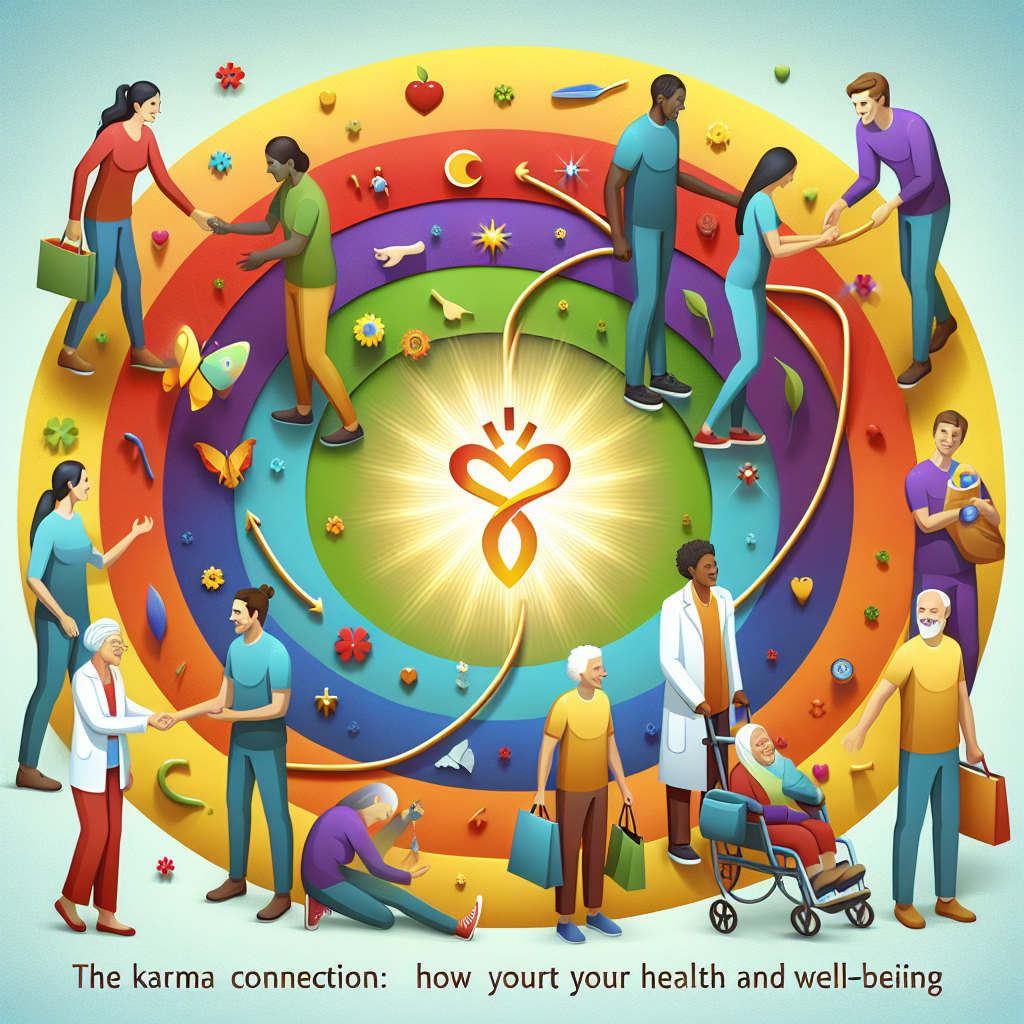The concept of karma has been ingrained in various philosophical and spiritual traditions for millennia. At its core, karma signifies the idea that every action has consequences, shaping not just our character but also our experiences in life. In a modern context, it’s increasingly clear that our actions—and the energies they emit—have profound implications for our health and well-being. This article explores that connection, revealing how our everyday choices intertwine with our physical health, emotional wellness, and mental state.
Understanding Karma
Karma is often perceived as a cosmic law of cause and effect. Actions, whether positive or negative, generate energies that influence us and those around us. However, it’s crucial to understand that karma isn’t merely about punishment and reward; it’s about balance and harmony. When we act with intention—whether through kindness, honesty, or compassion—we cultivate positive karma that resonates throughout our lives. Conversely, negative actions, such as dishonesty or malice, can lead to adverse effects, creating a ripple of negativity that can come back to us.
The Energetic Impact of Actions
All actions possess energy. When we engage in positive behaviors, we not only uplift ourselves but also improve the mood and health of those around us. Kindness, for instance, has been shown to have a beneficial impact on mental and emotional well-being. According to researchers, performing acts of kindness releases oxytocin—the "love hormone"—which can lower blood pressure, decrease anxiety, and elevate mood. This phenomenon showcases the interconnectedness of our actions and their direct influence on our health.
On the flip side, negative actions can have similarly tangible effects. Stressing over and engaging in conflict, negative thoughts, or harmful behaviors can lead to increased cortisol levels—the body’s primary stress hormone—resulting in adverse health outcomes such as hypertension, anxiety disorders, and depression. Hence, negative karma can manifest physically within our bodies, fundamentally shaping our health.
The Ripple Effect of Positive Actions
Positive karma produces a chain reaction that can enhance our overall well-being. Consider the simple act of smiling. Smiling not only elevates your mood but can also influence those around you to respond positively. This contagion of positivity is not just anecdotal; studies show that positive social interactions can promote better health outcomes, enhance immune function, and even increase longevity.
Engaging in activities like volunteer work or supporting community initiatives can also lead to a profound sense of fulfillment. This sense of purpose is instrumental in combating feelings of isolation, boredom, and despair, contributing significantly to mental health. The psychological principle known as the "helper’s high" highlights that when we assist others, we release endorphins—the body’s natural painkillers—fostering feelings of happiness.
The Role of Mindfulness in Karma
Mindfulness—the practice of being present and fully engaged in the moment—also plays a crucial role in the karma-health connection. By fostering awareness of our actions and their effects, we can cultivate a more deliberate approach to how we interact with others and ourselves. Mindfulness encourages us to act thoughtfully rather than reactively, promoting positive actions that can yield beneficial outcomes.
For instance, practicing mindfulness can help reduce stress and anxiety, leading to healthier behaviors. When we are mindful, we become more aware of our thoughts and feelings, allowing us to make conscious decisions that align with our values and ethics. This conscious decision-making process can positively influence both our karma and our health, leading to improved well-being.
The Importance of Forgiveness
Forgiveness is another vital aspect to consider in the karma-health relationship. Holding onto grudges can create emotional turmoil, leading to stress and negative physical health outcomes. When we choose to forgive, we release ourselves from the burden of anger, thereby cultivating positive mental and emotional states. This act of letting go can have a profound influence on our health, reducing stress levels, improving emotional regulation, and even boosting the immune system.
Building a Positive Karma Cycle
To create a cycle of positive karma that enhances health and well-being, we can adopt the following practices:
Practice Gratitude: Regularly expressing gratitude shifts our focus from what we lack to what we have, promoting a positive mindset and improving mental health.
Engage in Altruism: Acts of kindness and charity improve overall happiness and can lead to better physical and mental health.
Cultivate Mindfulness: Practicing mindfulness helps us become more aware of our actions and their consequences, allowing for more positive interactions.
Foster Community Connections: Building relationships with others often leads to mutual support, which can bolster our emotional resilience and well-being.
- Reflect on Actions: Regularly reflecting on our behavior helps us identify areas for improvement, guiding us toward actions that generate positive karma.
Conclusion
The connection between our actions and our health and well-being is profound and multilayered. By recognizing that positive actions generate positive energy, which in turn influences our health, we can create a self-sustaining cycle of well-being. We have the power to shape our karma through our choices, and in doing so, we have the potential to foster not just our well-being but also the well-being of those around us. As we continue to understand and apply this connection in our lives, we can drive positive change on both personal and communal levels.
FAQs
Q: What is karma?
A: Karma is the concept that every action has consequences, impacting our lives and the lives of those around us. It emphasizes the balance of positive and negative actions and their effects.
Q: How can positive actions impact my health?
A: Positive actions, such as kindness or engaging with community, can boost your mood, enhance immune function, and promote overall emotional well-being.
Q: What role does mindfulness play in karma?
A: Mindfulness helps individuals become aware of their actions and thoughts, allowing for more positive decisions that can enhance health and well-being while cultivating positive karma.
Q: Can negative actions affect my physical health?
A: Yes, engaging in negative actions or harboring negative emotions can lead to increased stress levels, anxiety, and other health issues, demonstrating the impact of negative karma on health.
Q: How can I create positive karma in my life?
A: You can create positive karma through practices like expressing gratitude, engaging in acts of kindness, fostering community connections, and being mindful of your actions and their effects.
Q: Why is forgiveness important for health?
A: Forgiveness allows individuals to release emotional burdens, reducing stress and promoting better mental and physical health outcomes. It fosters a positive mindset and contributes to a cycle of positive karma.
It seems like you provided the word “Prompt” without additional context. Could you please clarify or expand on what you’re looking for? Whether it’s a writing prompt, a question, a topic for discussion, or something else entirely, I’m here to help!, #Karma #Connection #Actions #Impact #Health #WellBeing, #Karma #Connection #Actions #Impact #Health #WellBeing, 1736199052, the-karma-connection-how-your-actions-impact-your-health-and-well-being





